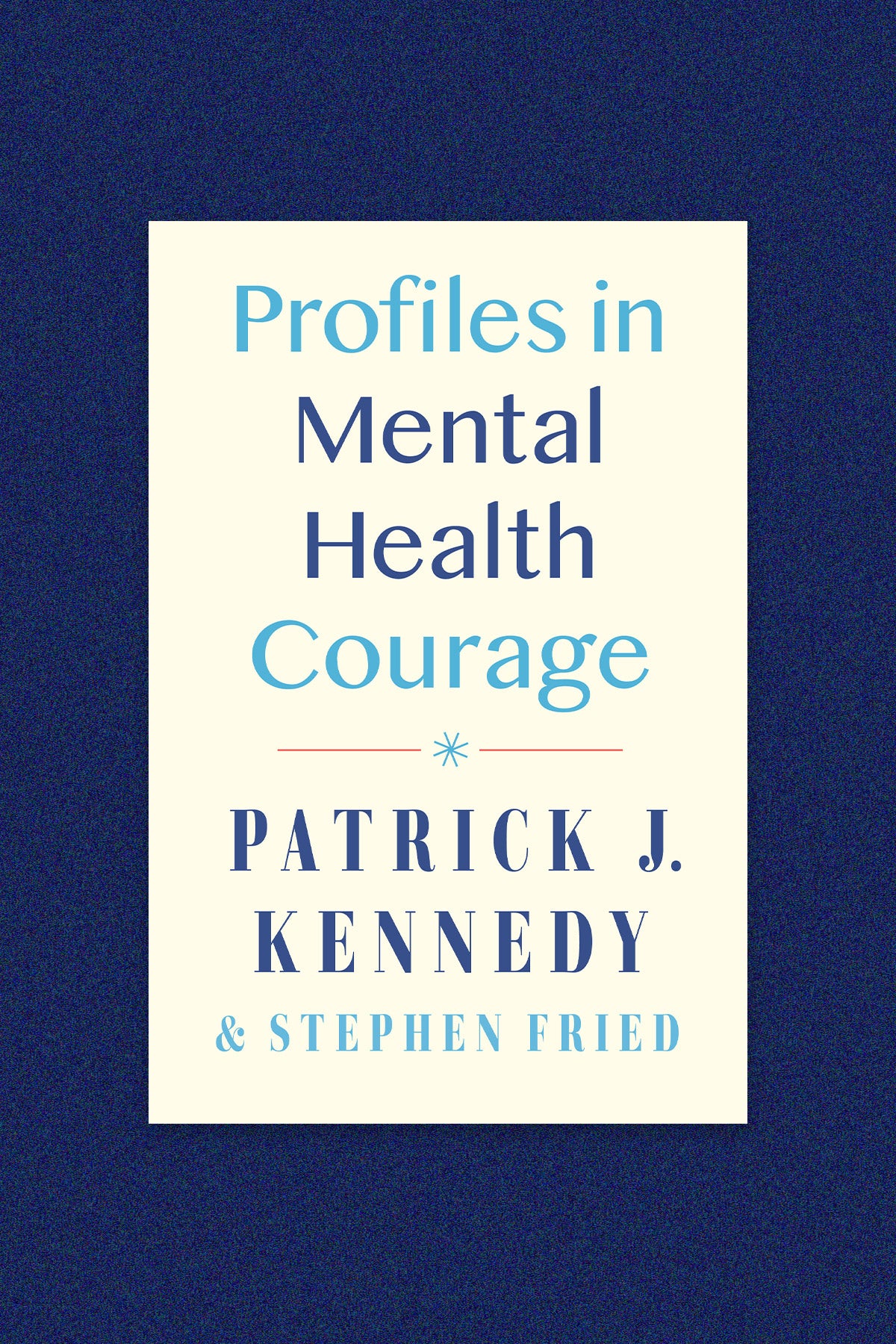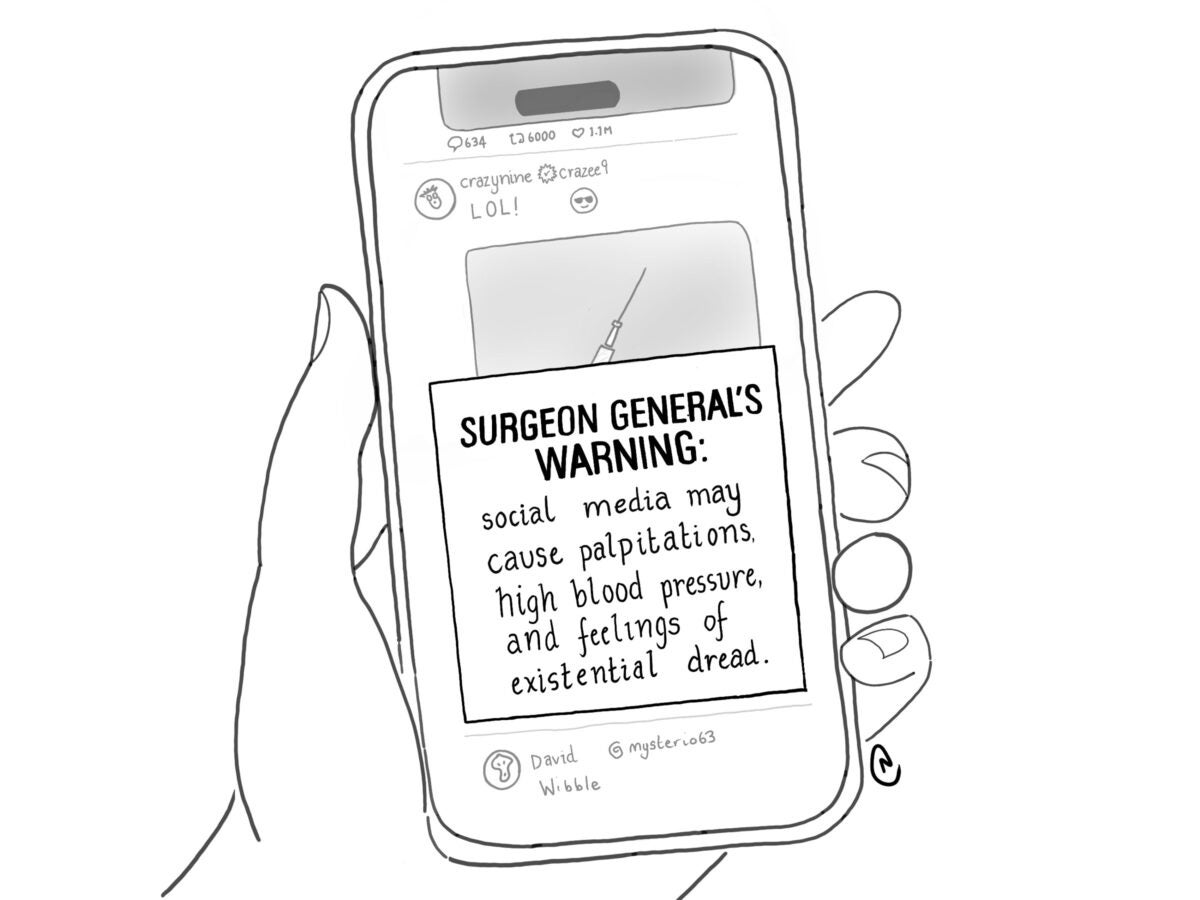
Book
A new book captures 12 Profiles of people living with mental illness
On its face, Profiles in Mental Health Courage is a book about the personal. Award-winning medical journalist Stephen Fried and former congressman and mental health advocate Patrick J. Kennedy spent hundreds of hours in conversation with people—some of them famous, most of them more ordinary—living with mental illness and its consequences. In the introduction, the authors write, “The inability of people to understand the actual challenges of these illnesses, and to learn about them and empathize with them, is as big an epidemic as the diseases themselves.”
The book succeeds as an antidote. The stories are deep, multifaceted, and memorable; some of them are haunting. Kennedy and Fried know something about the potential of a personal story to sound alarms about mental health in America; they coauthored A Common Struggle, a memoir of Kennedy’s life with mental illness and addiction, contending with a health system that fails so many. The dozen lives chronicled here deliver an even more powerful picture of mental health in America.
Sign up for Harvard Public Health
Delivered to your inbox weekly.
The authors chose stories about people from diverse racial and socioeconomic backgrounds. There is an NFL player who loses his sister to suicide, and a movie star who battles bipolar disorder; there are college students struggling to access care and middle-class addicts working through relapse and recovery, and there are people who slipped away from their working-class families as mental health challenges took hold of their lives. There are high achievers and childhood abuse survivors, often one and the same. There is even a PhD astronaut-hopeful. The authors approached the people with as much care as the writing: Each person in the book was given the chance to review their story, and to veto its inclusion.
One of the most dramatic stories belongs to Tonie Dreher, or Miss Tonie. Physically and sexually abused as a child, she turned to drugs—taking them and selling them—after she moved to New York, at age 20. Miss Tonie was homeless for long stretches and sold sex to survive; she had several children (she doesn’t remember how many), and she was in and out of correctional facilities. “What I learned,” Miss Tonie says, “is that substance abuse was a small part of my problem. The biggest problem for me, the biggest challenge for me, has been mental health. And I didn’t even know that I had a mental health problem.”
Her turning point came in therapy, which was a requirement to qualify for the disability income she hoped would allow her to stop selling drugs. She was a skeptic. “I mean, here’s this white man sitting in front of me, and I’m saying, ‘What are you going to be able to tell me about myself? I’m just here to get my social security benefits.’ When he started getting close to my surface, close to my truth about my life, I would go out and use . . . I guess I was running from myself.”
Ten years ago, after getting her GED, Miss Tonie became a mental health counselor, a job she’s worked at through various organizations ever since. She reconnected with some of her children, and she is building relationships with their children as a grandma.
This is how the stories in Profiles unfold. There is pain and loss and honesty and hope. Yet the book is more than a collection of personal stories; it is a call, as the authors say, for “a paradigm shift,” away from the idea that mental health crises are some unique signifier of our unprecedented modern age and toward acceptance that for a long, long time, a lot of us have been ill.
One case in point: This book’s eponymous volume, John F. Kennedy’s Profiles in Courage. In many ways a product of its time—a book that only features white men with political power—it is also evidence of the long roots of our mental health crisis, or at least one branch of it. Kennedy and Fried point out that four of the eight men JFK profiled, including founding father John Quincy Adams, lived with what we would now understand as mental illness; two died from it, one by alcoholism and another by suicide.
Profiles in Mental Health Courage insists on another paradigm shift, this one implicitly: Mental illness and its consequences, from substance use disorder to suicide, are public health problems, in both senses of the word. On the one hand, they are problems a public health system can and must take responsibility for. And on the other, they are problems that a broken, underfunded, or downright negligent public health system has, at the very least, exacerbated.
Those moments come through sparingly in Kennedy and Fried’s book as knowing asides, often in the authors’ shared and rather gentle voice. But they are still powerfully damning moments—moments when one person, in one story, happens to get treatment before they do irreparable harm to themselves or others. And at other moments in a story—sometimes the very same story—it happens that they do not.
Ashley Dunlop’s story is one example. Ashley works hard to handle addiction as responsibly as she can. She lucks out when a facility at Vanderbilt starts a pilot to treat patients who chronically relapse; her luck runs out when she moves across state lines, to live with her (loving and supportive) partner. No longer eligible for that program, her only option after her next relapse is in Louisiana. The authors contextualize her personal story as but one example of a health systems failure: “This is a huge part of the problem with care—when someone finally reaches the point where they will commit to a major, possibly life-changing program, there is often no simple way to find one with an opening that will accept your insurance.”
When Justin Maffett’s story begins, readers meet a high-achieving young attorney—a Black gay man from the south who is also a rising political star (he was befriended by the Rev. Al Sharpton). But then he has a psychotic break. His godfather, who is also the CEO of the American Psychological Association, intervenes to get him prompt treatment. “Mental health systems are so overly complicated and opaque, I have no idea how the average person can navigate them,” he tells the authors. “With as much as I know, it was still very difficult for me to help Justin get the care he needed. The only way I could do it was to call in favors from people.”
What unites the people in this book is not only that each has struggled with mental illness; it’s that each has had to weather the caprices of American health care. Some do not succeed; chapters chronicle a life remembered by loved ones after a suicide or the disappearance of a person lost to addiction. Others succeed against incredible odds, with the resilience doing so requires. “I think part of that [success] is a function of having an alcoholic parent,” says Philomena Kebec, an Indigenous lawyer and activist, “and then part of it is just living in America, right? That’s how we have to function as people. We’re only able to survive insofar as we can muster up the resources to get to the next level of care, right?”
Ultimately, Profiles in Mental Health Courage is a reminder not only of the humanity of those who suffer from mental illness and its consequences, but of how incapable our wider society is of coping with this crisis.
Book cover: Dutton


